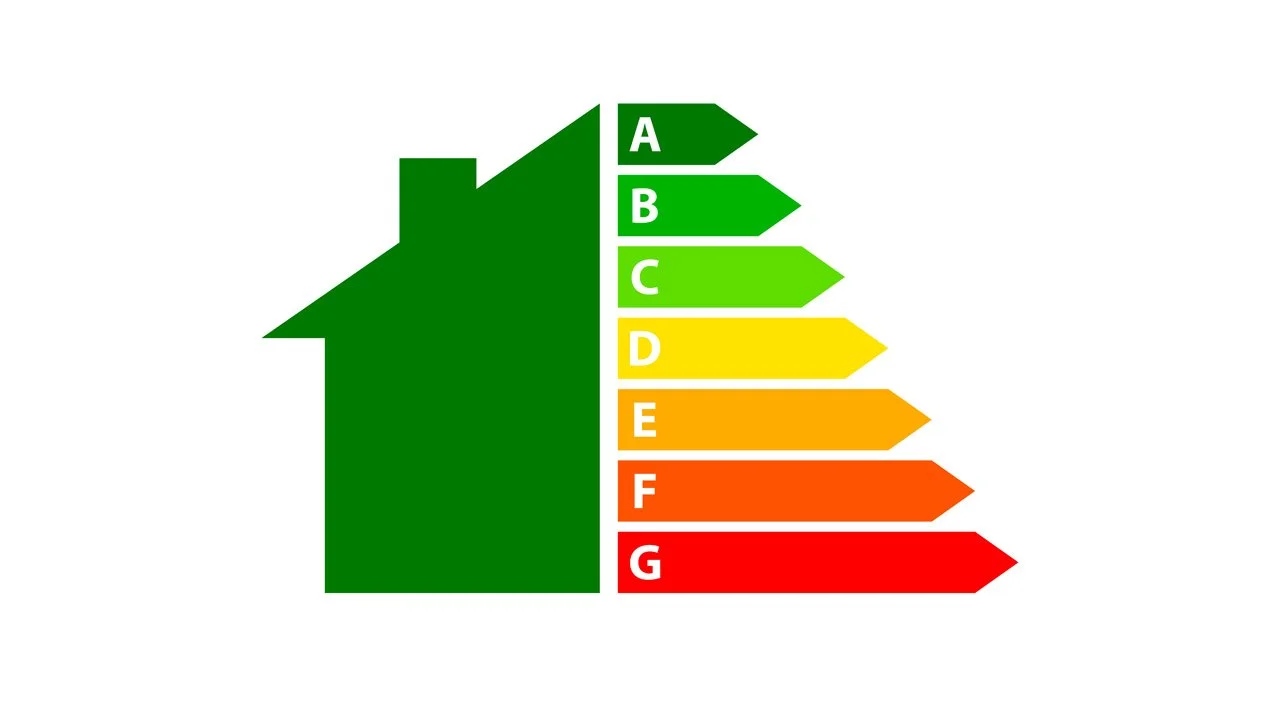
Offering services for Retail, Offices and Industrial units of all shapes and sizes.
Commercial EPCsDiscover our comprehensive Commercial EPC service covering London & the Home Counties. Whether you are in the process of selling or leasing a building, obtaining an EPC is essential to avoid potential hefty fines.
Energy ConsultationUnhappy with your existing EPC score? Improve it with HC Energy Surveys! With over a decade's experience in helping businesses go eco-friendly, we can guide you to make your commercial space more efficient. Save money in the short and long term while positioning yourself for a better score on your next energy survey.
Display Energy CertificatesDisplay Energy Certificates (DECs) raise public awareness of energy use in public buildings and inform visitors about a building's energy consumption. Affected organizations must display a visible DEC and possess an advisory report with energy improvement recommendations. DECs provide essential information on energy performance and promote environmental responsibility.
In-House Professional Photography ServiceIntroducing HC Energy Surveys' in-house professional photography service! Capture stunning photos of your commercial premises in just a few hours.
Book your EPC today
A Commercial Energy Performance Certificate provides a summary to prospective buyers or tenants of the energy efficiency and carbon emissions of a building - this certificate must be made available to prospective occupiers. The Certificate is accompanied by a detailed recommendations report which outlines improvements that may be made to the building and its services.
These are designed to improve its energy efficiency and reduce fuel costs, thereby increasing the value of the building and its attraction to prospective occupiers. The recommendations are ranked in order of their potential cost/benefit.
The Energy Performance Certificate should be available by the time marketing or viewings take place and confirmation that it has been provided will almost certainly be requested by the Solicitors acting for the purchaser or incoming tenant. The EPC on a non-domestic building is then valid for 10 years but would need to be made available to any subsequent tenants or purchasers during that time.
EPC FAQ’s
-
Q. Why is there a need to assess buildings for their carbon dioxide emissions?
A. The global climate is changing; this has been attributed to a now widely accepted phenomenon, known as the greenhouse effect. The continual increase of the world’s population and improving standards of living have resulted in an ever growing requirement for energy to facilitate demand. Whilst the search for new sources of energy and types of fuel has previously been the priority, there has now been a shift towards finding methods of reducing demand. This has been partially realised through improved efficiency of production machinery and transport vehicles. Analysis of the breakdown of energy use by sector reveals that the processes providing space heating within buildings are a significant contributor to the overall figure.
The 160 million buildings in the European Union use over 40% of Europe’s energy and create over 40% of its carbon dioxide emissions. These percentage contributions are continuing to rise. Under the Kyoto protocol, all member states are committed to either curb, or reduce their total CO2 emissions, depending on the country’s current output.
Q. What is expected of us under the Kyoto Treaty?
A. In 1997 the UK Government signed up to the Kyoto treaty. This stipulated that all ratified states would enter an agreement to either curb, or reduce their total greenhouse gas emissions, depending on the country’s current output.
Q. What the UK Government signed up to.
A. The UK target was set at a 12.5% reduction of 1990 greenhouse gas emissions by the year 2008 – 2012. This covers a basket of six greenhouse gases (carbon dioxide, methane, nitrous oxide, hydro fluorocarbons, per fluorocarbons and sulphur hexafluoride), weighted for their global warming impact. Carbon dioxide is thought to account for half of the warming effect associated with greenhouse-gas emissions. UK carbon dioxide emissions currently account for about 2% of the global total. Building energy use currently accounts for 46% of total UK energy consumption, resulting in the release of 66 million tonnes of carbon into the atmosphere.
In addition to their Kyoto requirement, the UK government also imposed a more stringent domestic target of reducing carbon dioxide emissions to 20% below 1990 levels by 2010. A long term strategy was revealed in February 2003, when the Government released the White Paper entitled “Our energy future – creating a low carbon economy”. The target set by the Government is to reduce emissions of carbon dioxide by 60% by 2050 (excluding aviation and shipping). The target is based on a report by the Royal Commission for Environmental Pollution (2000), which estimates that reductions in the region of 60% relative to current day emissions would be required by 2050 to prevent CO2 concentrations exceeding safe limits.
Q. How is the UK helping to achieve this?
A. It is hoped that this will be achieved by an increased reliance on renewable energy for production of electricity and a speeding up of changes to Building Regulations and setting tougher standards for energy efficiency in new homes, refurbishments and electrical products. -
Commercial Energy Performance Certificate provides a summary to prospective buyers or tenants of the energy efficiency and carbon emissions of a building. Please see an example here. This certificate must be made available to prospective occupiers. The Certificate is accompanied by a detailed Recommendations Report which outlines improvements that may be made to the building and its services.
These are designed to improve its energy efficiency and reduce fuel costs, thereby increasing the value of the building and its attraction to prospective occupiers. The recommendations are ranked in order of their potential cost/benefit.
The Energy Performance Certificate should be available by the time marketing or viewings take place and confirmation that it has been provided will almost certainly be requested by the Solicitors acting for the Purchaser or incoming Tenant. The EPC on a non-domestic building is then valid for 10 years but would need to be made available to any subsequent tenants or purchasers during that time. Under the current regulations, an EPC is not required for lease renewals. -
As a seller or landlord you are responsible for ensuring that an EPC is available for the property being sold, let , sub-let or assigned. You should therefore ensure any agents acting on your behalf are complying with the Regulations.
-
The penalty for failing to make an EPC available to any prospective buyer or tenant when selling or letting non-dwellings is fixed, in most cases, at 12.5% of the rateable value of the building, subject to a minimum penalty of £500 and a maximum of £5,000 per instance (penalties are repeated for each instance of breach) and the EPC will then still need to be obtained and paid for.
-
Commercial buildings are categorised according to the complexity of their energy demands as follows;
Level 3 commercial buildings – buildings with boiler systems below 100kW output (or other simple heating systems), simple ventilation, small comfort cooling systems below 12kW
Level 4 commercial buildings – buildings with linked boiler systems over 100kW, multi-split cooling systems, VRF systems, central air-conditioning plant (AHU, all-air, air/water, chillers, ductwork etc).
Level 5 commercial buildings – very complex modern buildings having atria, curved glass, night-time cooling etc
Energy assessors are accredited to these different levels and can only issue EPCs for the level of buildings they are qualified for. HCES are accredited to Level 3 and Level 4 meaning we can assess 98% of all commercial buildings in the country. -
The price of a commercial EPC varies according to the complexity of the building (and not just the size of the building) so we need some details from you to enable us to quote for the job. Please either call, email or fill out the on line quote form.
-
The Energy Assessor will need to have access to all areas of your building and the details of the structure and services in order to understand the layout of the building, its construction and its energy demands. Any floor plans, drawings and details of heating and air-conditioning plant or equipment that can be made available in advance would be most useful. We normally send you a Pre-Inspection Questionnaire Form for this information to be entered on to.
The information and data collected by the Assessor is then input into a Government approved software package which produces the EPC and Recommendations Report. These are supplied to you both electronically and as a printed copy with the EPC then registered on the National Register, as required under the regulations. As the landlord or vendor of the property, you are then in complete compliance with the Regulations. -
The sale and let of commercial buildings can be complex, with floors let to different tenants, and with a mixture of retail, office, industrial and residential accommodation. There are various rules and exemptions covering the size, use and layout of some buildings and the nature of the heating and ventilation systems in use. We can assist with any queries that you may have and establish the regulations as they apply to you and your property. Please contact us for further information.
There is a short list of commercial properties that do not require an EPC, which is as follows:Places of worship
Property’s with consent to be demolished within a 2 year period.
Stand-alone buildings with a total useful floor area of less than 50m2
Industrial sites, workshops and non-residential agricultural buildings with low energy demand.
-
It is possible that amendments to existing leases may be required or advisable in order to allow landlords to recover the costs of providing EPCs (and carrying out any recommended improvements), via service charges to tenants. This is particularly applicable where buildings have multiple occupants and the requirement for an EPC for the whole building may be triggered by a vacancy in a single part.


Stunning Professional Property Photography.
Picture this (no pun intended) your business has a shiny new website, your social media is active and your Google listing is up and running but you don’t have any nice photos of your commercial premises. Say no more, HC Energy Surveys now offer an in-house professional photography service.
We come to your premises for a few hours, take the photos and can have the photos sent back along with your EPC. We can also throw in a floorplan too! If you think your website could do with a content refresh, feel free to book in a photo shoot! All of the photos featured on this website have been taken by our in-house photography team!







“We have used HC Energy Surveys for over 10 years for all our commercial EPC’s. Throughout this time they have been extremely efficient in both carrying out the surveys and issuing the reports back. Their advice and recommendations are invaluable for the energy performance of our buildings. Thanks for all your help and professionalism”
Trusted by
“We were impressed by HC Energy Surveys’ expertise. They quickly assessed our property’s energy efficiency and suggested practical improvements that saved us both money and resources. Highly recommended!”
“HC Energy Surveys’ efficiency is exceptional! From the initial inquiry to receiving our commercial EPC, the entire process was seamless and timely. Their knowledgeable team made the entire experience hassle-free and efficient.”
Get in touch!
Tel: 0845 467 8785 I Email: info@hcenergysurveys.com I 3rd Floor, 207 Regent Street, London, W1B 3HH












